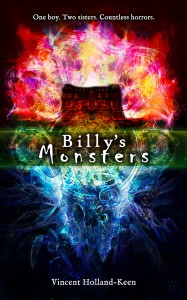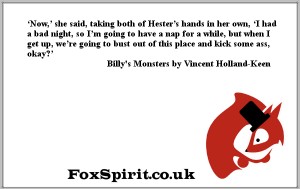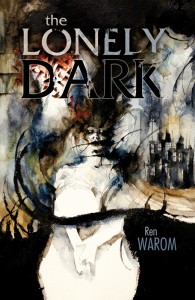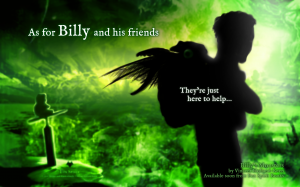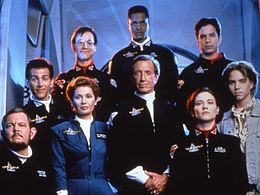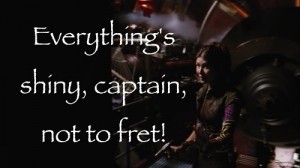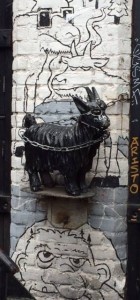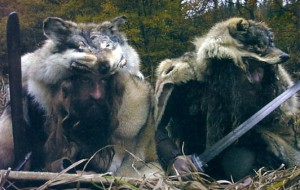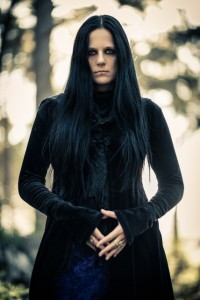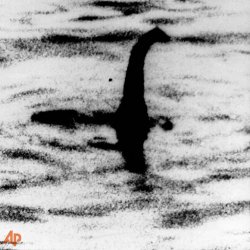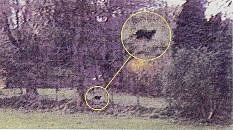Bringing the Cursed One to life
Icy Sedgwick
A perusal of any volume of folk tales will tell you that Europe has a lot of monsters. Originally I wanted to write about a monster native to the United Kingdom, and my home county of Northumberland has its fair share of faeries, wyrms and spectres. But there is one place in the world to which I’m repeatedly drawn, and that’s the enigmatic jewel of the Mediterranean – Venice.
Venice is a mysterious place, is it not? Canals divide its ancient streets, splitting the city into a series of small islands, linked by bridges and alleyways. Part labyrinth, part collective dream, Venice changes little as the years go by. True, it was once the capital of a powerful sea-based empire, embroiled in trade and commerce, until the rise of Portugal as a naval competitor in the seventeenth century. These days, it relies mostly on tourism and trade exports, particularly glass in Murano and lace in Burano. Yet still it captures the mind and imagination and, dare I say it, the heart.

I think part of Venice’s appeal lies within its canals, and what better to live in those waterways than some primal being? I’m fascinated by the Lovecraftian concept of Elder Gods, of ancient deities or beings who remain in the world, secreted away in darkness or the lost places that humans have either forgotten, or abandoned. I decided that mine would be seven in number, with the youngest being known as the Cursed One, yet perversely granted with the power to control its siblings. The canals became integral to its way of life, with the Cursed One only able to leave the water once a year.
What only occurs once a year in Venice? Why, the Carnival, of course! What better opportunity would a monster have to hide than a city-wide event in which everyone hides their true face? Indeed, many of the other Carnival revellers could be just as monstrous, yet hidden behind their bauta masks they’re simply people joining in with the fun. The Cursed One chooses a mask for itself from among the reflections it has stolen of those gazing into the canals at midnight, adding an extra layer to its monstrosity, and another facet to the mystery of Venice.
As befitting any ancient being, the Cursed One goes by many names – the protagonists refer to it as ‘Number Seven’, and La Musicale Morte, or the Musical Death. It’s given a name that humans can actually pronounce, and is so named for the music it sings in the mind when it is close at hand. To hear such music, based upon the notion of the banshee’s call, is to realise death is coming. The city of Vivaldi seemed like the ideal location for such a musical being, and wouldn’t music be the perfect non-verbal mode of communication? After all, for one character, the song of La Musicale Morte doesn’t spell death, but a form of rebirth into existence.
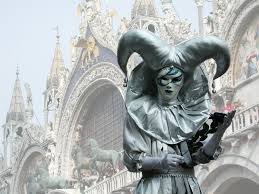
I chose to set the story in the eighteenth century, since it was outlawed in 1797 (it was reinstated in 1979) and the baroque setting of decadence and festivities seemed to suit the excesses of the creature. The fact that Venice has changed so little means the locations of the story still exist today! The eighteenth century also seemed to suit the concept of a shadowy organisation, known as the Order of the Sphinx, intent upon mysteries and the pursuit of both knowledge and power. Was that not the driving force behind the Renaissance, the period in which the Carnival became official?
So don your mask, and slip into the crowded piazzas and campos of Venezia, stroll across the bridges and marvel at the spectacle, and listen carefully for the siren song of La Musicale Morte…
Bio
Icy Sedgwick is a Gothic throwback, steeped in horror cinema and historical fiction. She teaches graphic design when she’s not writing, and plots world domination when no one is looking. She is also a knitter, a baker, and a jewellery maker.
Icy Sedgwick’s Cabinet of Curiosities – http://www.icysedgwick.com/
Twitter – http://twitter.com/IcySedgwick
Facebook – https://www.facebook.com/miss.icy.sedgwick
Icy on Goodreads – https://www.goodreads.com/author/show/4387348.Icy_Sedgwick

